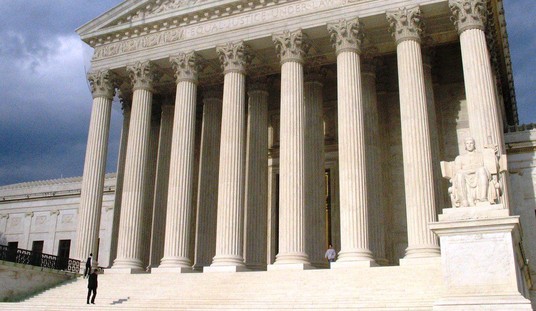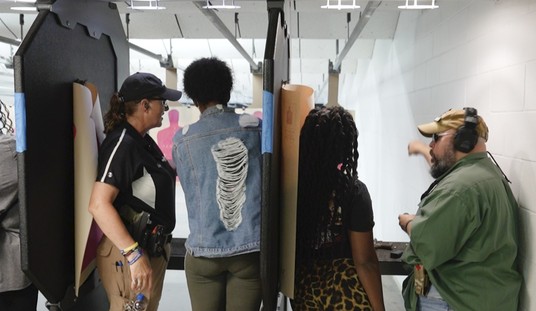High-resolution security camera footage inside a Illinois bank captured a dramatic gun battle between a retired sheriff’s deputy turned security guard and an armed bank robber who clearly wasn’t prepared to face armed opposition.
The security guard behind the deadly shot that killed a bank robber inside Alpine Bank in January will not face criminal charges. That guard is now being called a hero.
“There is no doubt in my mind the actions of Brian Harrison saved the lives of those that were employees in the Alpine Bank location on that date and saved his own life,” Winnebago County State’s Attorney Joe Bruscato, said.
It took just seconds: From a quiet day inside Alpine Bank on N. Mulford to a masked gunman creating chaos. Surveillance video shows Laurence Turner coming in, shooting once into the ceiling, then at Metro Enforcement security officer Brian Harrison. Harrison is a former Winnebago County deputy who jumped into action.
“They are taught generally to shoot center mass in the body. This is a very dynamic, fluid situation and he’s doing what he was trained for 30 years to do and it was eliminate and take care of the threat,” Rockford Police Chief Dan O’Shea said.
Let’s go to the video, and then we’ll break it down.
Now for the analysis.

As the footage begins rolling, it’s clear that the male bank employee in the middle location at the counter and the woman with the mustard-colored sweater have spotted the armed robber approaching with a gun in one hand and a bag in the other. The employee in the blue shirt is oblivious to the robber’s approach as he is head-down in his work, and Metro Enforcement security officer Brian Harrison (in the white long-sleeved shirt, right of frame) is looking at the woman and doesn’t see bank robber Laurence Turner’s approach. Turner is about to enter the bank in the freeze-frame above, but his location is obscured by the wall of the bank’s vestibule.

Turner enters and immediately raises his gun and cranks a round into the ceiling. Harrison finally recognizes there is a threat after the bank employee in the middle location at the counter and the woman in the mustard colored shirt have dropped behind their respective counters, seeking cover. The clerk in the blue shirt looks up, startled by the sound of the shot.

Turner simply doesn’t see Harrison at first. Turner begins responding by defensively moving his hands in front of his face when Harrison awkwardly yanks his weapon out of his holster and presses off a round that nearly takes off his own left hand, which was in front of the muzzle, but fortunately just off to the side. The employee in the blue shirt is now crouched down seeking cover.

Turner sucks up to the counter for cover and points his silver handgun (you can see it through the opening in the right teller’s station) at Harrison, who is awkwardly attempting to reach around the corner of the counter to engage Turner one-handed while still using the corner of the counter for cover. The muzzles of the two handguns are roughly three feet apart as they fire at one another.

Hit by at least one of Harrison’s bullets and realizing he’s in a horrible position, Turner rolls towards the door in a desperate attempt to escape.

Turner rises, a gun still in his hand, and attempts to flee. Harrison steadies himself in what appears to be a two-handed Weaver grip and fires a final shot that appears to strike Turner as he rises. As Turner was still armed and only seeking to improve his position, and still quite capable of putting lives at risk, this shot to Turner’s back is morally, ethically, and legally justified. Harrison is protecting himself and at least three bank employees.

Turner staggers forward, and then collapses between the outside set of doors. Harrison collects himself, grabs his handcuffs, and walks forward to put Turner in cuffs. The fight is over.
Turner was eventually tied to three other bank robberies, including this one.
Metro Enforcement security officer Brian Harrison’s tactics here weren’t good. He nearly shot himself while drawing his gun, and it seems plausible that the first shot he fired—the one that nearly took off his own left hand—may have been a negligent discharge fired before he could get a two-handed firing grip.
Harrison backs away for a second to compose himself, but then makes a nearly fatal decision to poke his head back over at the last position where Turner saw him, as Turner was firing in that direction. This was the same mistake that cost one of the officers murdered in the Dallas police shooting his life, as that officer attempted to re-engage that terrorist from the exact same location, expecting that terrorist to be in the same location as he last saw him several seconds before. Instead, the anti-cop terrorist started moving as the officer ducked behind a column, the used the officer’s cover as a cover for his own movement, and executed the cop from behind.
Harrison would have been much better off to have backed off then taken the walkway behind the teller’s stations to move left quickly and take Turner from behind as Turner was fixated on where he last saw Harrison on the right.
Harrison didn’t win this gunfight because he used good tactics or was a great shooter, but largely due to luck, the fact Turner was high on drugs and was a lousy shot, didn’t expect any armed opposition, and made just about every wrong decision a criminal in that situation could make.
Sadly, that isn’t uncommon.
Many gun fights aren’t won by a person who was appreciably better, it’s simply that during that given battle, one person sucked less than the other one and had the mentality to try to win the fight.
That’s what seems to have happened here. Harrison wasn’t good. Turner was just demonstrably worse.







Join the conversation as a VIP Member